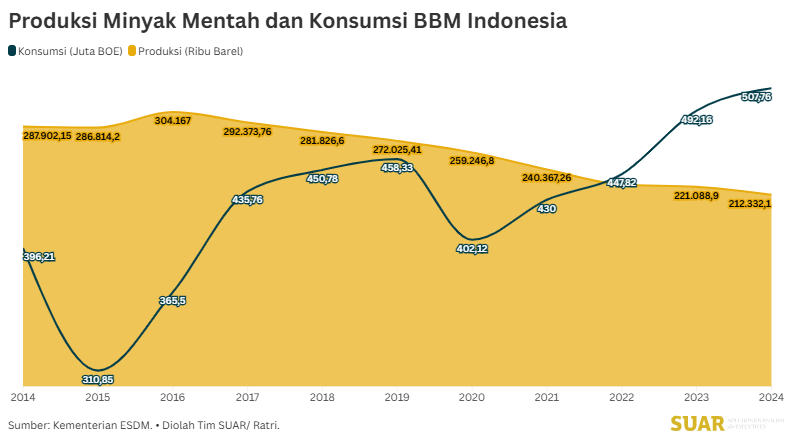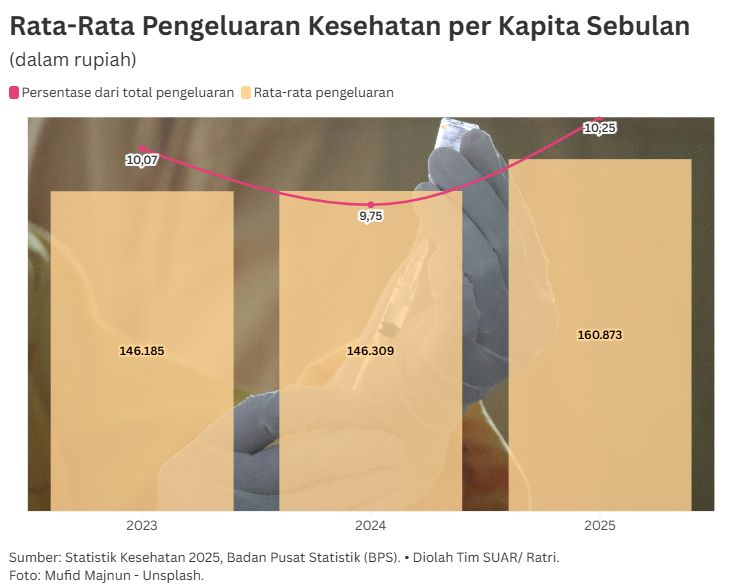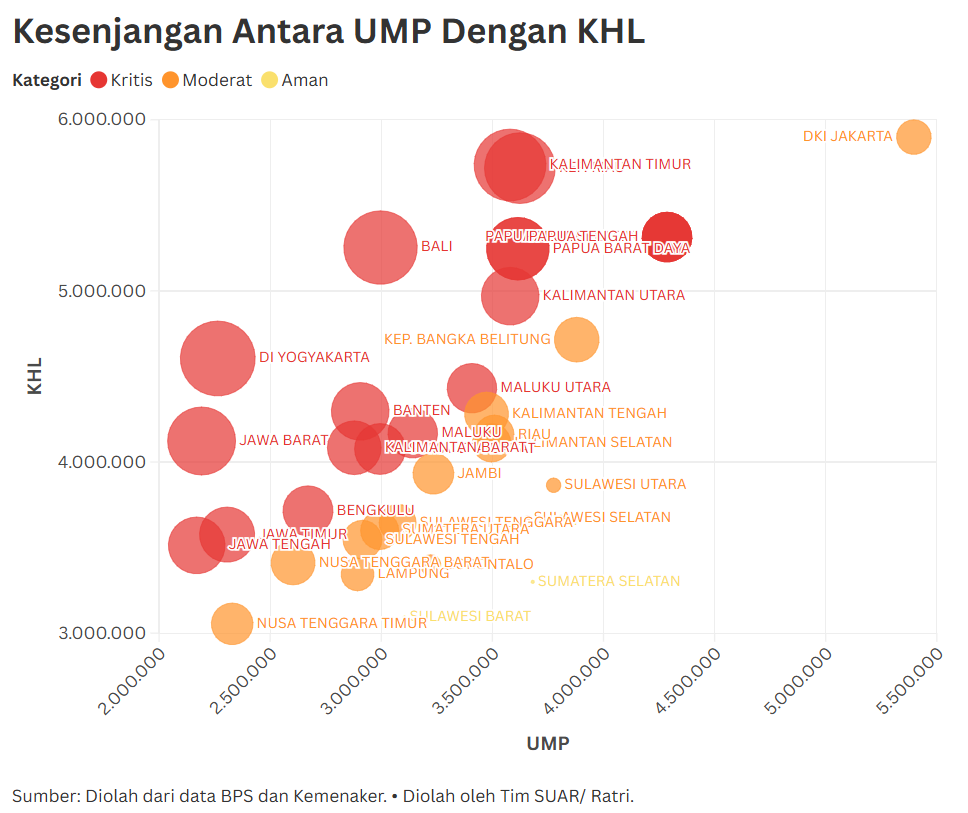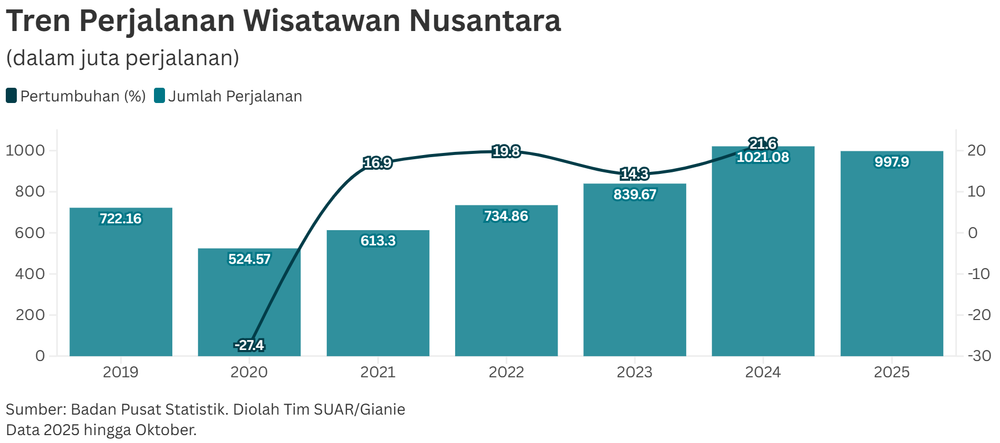The increasing population and the growing economic activity have increased the need for fuel oil (BBM). However, this increase is not matched by domestic production. The increasing dependence on fossil energy sources, in addition to posing a risk to national energy security, will also burden government finances.
Data from the Ministry of Energy and Mineral Resources shows that energy consumption from fuel oil still holds a significant proportion in the national energy mix. With the population continuing to increase, national fuel consumption is also continuing to soar. Recorded, energy consumption increased from 396.21 million barrels in 2014 to 507.76 million barrels in 2024. In one decade, fuel consumption increased by about 28%.
Unfortunately, this increasing consumption trend is inversely proportional to the condition of domestic oil production. Data shows a worrying decline in production. Oil production continues to decline from 287.902 million barrels in 2014 to only 212.332 million barrels in 2024.
The widening gap between soaring consumption and declining production automatically encourages an increase in import needs to cover the supply deficit. Oil imports, both oil products and crude oil, become a safety valve to ensure the daily energy availability of the community.
This increase in imports, unfortunately, places a heavy burden on the foreign trade balance of the oil and gas sector. The deficit condition (imports greater than exports) in this sector is getting bigger. Specifically, for imports of oil products, the figure jumped significantly from 18,688.9 thousand tons in 2006 to 36,888.7 thousand tons in 2024. It was observed that until 2024, the trade balance of oil products recorded a deficit of 28,796.8 thousand tons, while crude oil trade reached a deficit of 18,236 thousand tons.
Meanwhile, crude oil imports are also moving in an upward trend, reaching 16,895.2 in 2024. The increasing need for imports makes the oil and gas sector a major contributor in increasing the trade balance deficit and suppressing the country's fiscal stability due to the high allocation of energy subsidies and compensation.
Long-term energy needs are expected to continue to increase, resulting in Indonesia entering a deficit trap that threatens energy independence. Quick and bold policies need to be taken immediately to reduce the high dependence on oil imports.
For short- and medium-term solutions, efforts to maximize the capacity of oil refineries or even add refineries by Pertamina are a necessity. Increasing the efficiency and capacity of refineries will help increase the production of oil products in the country.
However, these efforts need to be accompanied by investment for upstream exploration and production to stem the rate of decline in national crude oil production.
In addition to optimizing domestic oil production, plans to reduce the fossil energy mix, especially in the use of fuel oil, must be accelerated to achieve energy independence. The government's mandatory biomass program since 2014 encourages the use of biofuels to cover fuel consumption needs.





